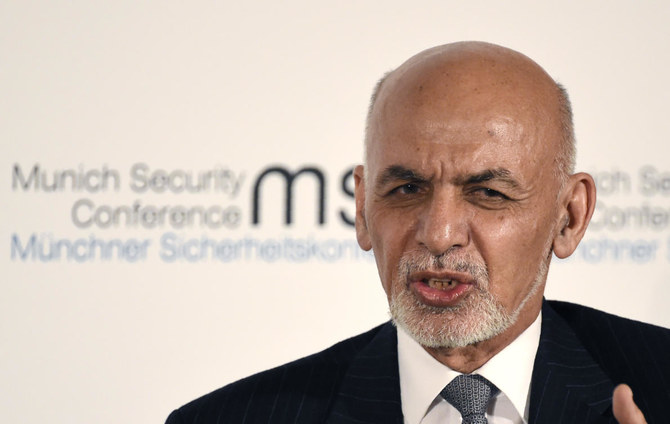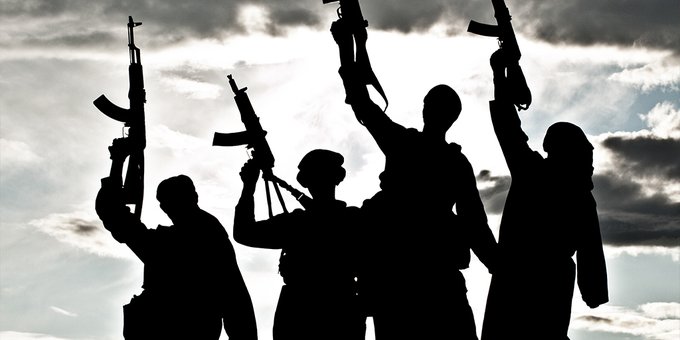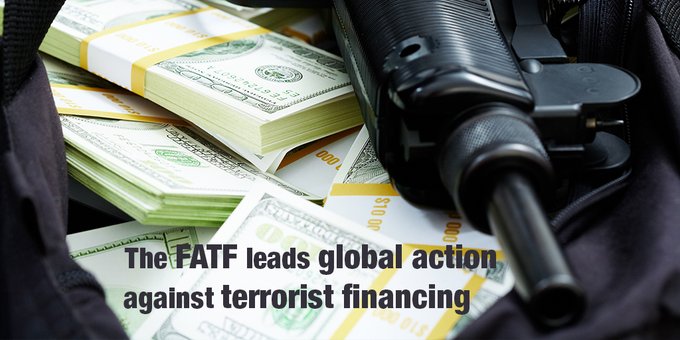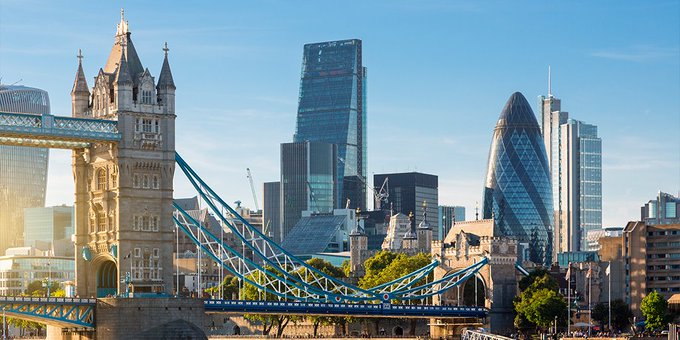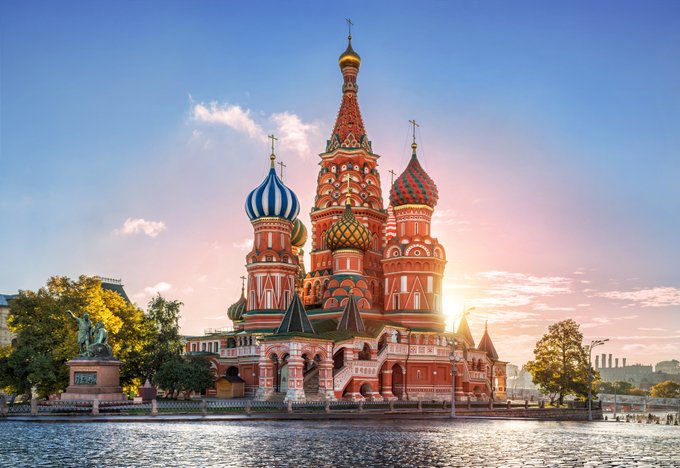M WAQAR..... "A man's ethical behavior should be based effectually on sympathy, education, and social ties; no religious basis is necessary.Man would indeed be in a poor way if he had to be restrained by fear of punishment and hope of reward after death." --Albert Einstein !!! NEWS,ARTICLES,EDITORIALS,MUSIC... Ze chi pe mayeen yum da agha pukhtunistan de.....(Liberal,Progressive,Secular World.)''Secularism is not against religion; it is the message of humanity.'' تل ده وی پثتونستآن
Tuesday, February 18, 2020
#Afghanistan - Ghani Named Afghan Election Winner. His Opponent Claims Victory Too.
By Mujib Mashal, Najim Rahim and Fatima Faizi
https://www.nytimes.com/2020/02/18/world/asia/afghanistan-election-ashraf-ghani.html
After a five-month dispute over the vote, President Ashraf Ghani won a second term. But a parallel declaration by a main rival threatens a crisis ahead of a U.S.-Taliban peace deal.President Ashraf Ghani on Tuesday was declared the winner of Afghanistan’s presidential vote after five months of delayed results and bitter dispute. But the announcement threatened to tip the country into a full-blown political crisis on the cusp of a U.S. peace deal with the Taliban.
Just hours after the announcement, Mr. Ghani’s leading challenger, Abdullah Abdullah — who accuses Afghanistan’s election commission of favoring the incumbent — also declared himself the winner and said he would form a government of his own.The dispute over the election result comes just after a breakthrough in the negotiations between the United States and the Taliban, with the two sides arriving at a tightly choreographed peace plan expected to be rolled out in a matter of days. The plan calls first for a test period of “violence reduction,” which would lead to the Taliban and Washington signing a deal. Soon after that, the two Afghan sides would sit down to discuss the political future of the country.
But Western diplomats have long feared that a political crisis in Kabul would weaken the Afghan government’s hand in the negotiations and affect the overall peace plan.
The timing of the election conflict means Mr. Ghani’s government will be challenged, and distracted, during the tight window of days when the details of the “violence reduction” need to be determined.In a news conference announcing the election result after an audit of about 15 percent of the total vote, the chief of Afghanistan’s election commission, Hawa Alam Nuristani, said that Mr. Ghani had won with the narrowest of margins — 50.64 percent of the vote, just surpassing the 50 percent minimum required for an outright victory with no runoff. Mr. Abdullah received 39.5 percent.
The win puts Mr. Ghani in position for another five-year term as president.
“This is not just an election victory,” Mr. Ghani said, flanked by his running mates, after the result was announced. “This is the victory of the Islamic Republic of Afghanistan. This is the victory of the people’s wishes.”
Hours later, however, Mr. Abdullah appeared in a televised address surrounded by his own supporters.
“I asked those who believe in democracy, in a healthy future for this country, in citizens’ rights to stand up to fraud and to not accept this fraudulent result,” Mr. Abdullah said. “We are the winners based on clean votes, and we declare our victory. We will form the inclusive government.”
Both candidates spoke from their palaces, where throngs of their supporters had gathered. A narrow road leads to both, with little space separating the two compounds. Late into Tuesday evening, as the supporters of both sides remained inside, the road was tense, overflowing with armored vehicles and the armed guards of both camps.
For Mr. Ghani and Mr. Abdullah, the situation is almost a repeat of five years ago, when both were stuck in another disputed election that went to a runoff. For many ordinary Afghans, it’s a frustrating case of déjà vu.After Mr. Abdullah led in the first round in 2014, Mr. Ghani came from behind to win in the runoff, leading to Mr. Abdullah rejecting the results. It took John Kerry, then Secretary of State, to broker a power-sharing agreement where Mr. Ghani became president and Mr. Abdullah became the government’s chief executive, with control over a large share of appointments.The brokered deal deeply hurt the faith in elections of many Afghans, and the turnout for this year’s vote, held in September amid a record number of Taliban attacks intended to destabilize the election, was low.During their five years sharing power, the two men were frequently at each other’s throats, their bickering often bringing the government to a standstill amid a bloody war that took the lives of about 50,000 Afghan forces in that time.
When they both ran for president again, it raised fears that the country’s institutions — particularly the weary security forces — could be split apart.
The initial results of the vote were delayed by months. When Mr. Ghani was declared in the lead in the preliminary count, Mr. Abdullah and several other candidates disputed about 300,000 votes from the low turnout of about 1.8 million. Among those were 100,000 ballots registered in the system either before or after voting hours — in some cases by weeks or months.Mr. Abdullah’s supporters say those were fraudulent votes cast in favor of Mr. Ghani. The election commission has attributed the irregularities to human error in setting the time and date of devices that recorded the votes.The preparations to announce the final results suddenly picked up steam this week as the peace deal became imminent, with many reading it as Mr. Ghani making sure a Taliban deal does not deny him a second term in office.
But many of Mr. Abdullah’s strongest supporters threatened the formation of a parallel government if their grievances — which Mr. Ghani’s team sees as obstructionism so that the opposition can get a share of the power — were not taken into account. Abdul Rashid Dostum, one of Mr. Abdullah’s main supporters and a powerful strongman who was previously Mr. Ghani’s vice president, said at a recent gathering: “Even if they put a knife on my throat, even if they hang me, I will not accept an announcement based on fraud.”
https://www.nytimes.com/2020/02/18/world/asia/afghanistan-election-ashraf-ghani.html
PakSaudi - A princely promise - 3,248 Pakistanis languishing in Saudi Arabia’s jails - Only 89 prisoners have been released
Sarah Belal
A YEAR ago, a prime minister made an impassioned plea and a prince made a promise.
Two powerful men rekindled hope in more than 2,000 ordinary men and women and their families back home. It was a resounding victory for all of us who hoped that Prime Minister Imran Khan would bring up the plight of nearly 3,248 Pakistanis languishing in Saudi Arabia’s jails during Crown Prince Mohammed bin Salman’s first state visit to Pakistan. But we got even more than we had hoped for. The prince dubbed himself Pakistan’s ambassador in Saudi Arabia and announced the next day that the kingdom would release 2,107 prisoners. It was a magnanimous gesture.
There are close to 11,000 Pakistanis imprisoned in foreign jails, of which around 6,000 are in the Middle East. The Pakistani-Saudi migration corridor, in particular, is considered one of the costliest in the world in terms of recruitment expenses for economically disadvantaged workers. Yet individuals and groups who seek to coerce and deceive indigent individuals seeking employment overseas in order to smuggle controlled substances to Saudi Arabia operate with significant impunity.
Once these men and women are imprisoned, their families back home learn of their arrest and detention weeks or months after the incident, and only after the prisoner is able to call back home. “The government never notified us about his imprisonment or his criminal case. We are alone in this process,” the family member of a prisoner we are representing told us. According to interviews with detainees and their family members back home, embassy officials rarely visited them or provided any assistance, unlike embassy officials from other countries.
This is exactly why Prime Minister Khan’s promise is so pertinent. Out of 579 prisoners reportedly released by Saudi Arabia, only 89 have been released from Saudi jails following the crown prince’s announcement. This information came to light when a list was submitted by the Ministry of Foreign Affairs before the Lahore High Court in November last year. The rest of the prisoners were repatriated before the prince’s state visit to Pakistan.
Only 89 prisoners have been released from Saudi jails following the announcement.
A prime minister or crown prince cannot be expected to micromanage. A gesture was made. It is now up to the bureaucracies of the two countries to ensure its implementation in letter and spirit. That is yet to happen.
‘No one is listening’: Pakistani mothers jailed in Saudi Arabia call for help
By Suddaf Chaudry
A year ago, Saudi Crown Prince Mohammed bin Salman ordered the release of 2,100 Pakistanis from Saudi prisons. It's unclear how many have actually been returnedMohamed Saeed sits on a bed, looking at pictures of his mother who has been held in a Saudi jail for the past three years. For years Saeed’s mother Zohra Naveen, a housewife, had been desperate to perform umrah, a Muslim pilgrimage to the holy city of Mecca, but was unable to afford the trip. 'I knew that if I spoke, my son would be harmed' So when Naveen met a woman named Pomi at a local clothing store who said she could cover the entire cost of the journey, Saeed and Naveen’s friends say she jumped at the chance. “Zohra is a sweet-natured woman. She only saw the good in people,” Riffat, a neighbour, tells Middle East Eye. “She was duped.” It was only when Naveen was en route to Saudi Arabia that someone travelling with her revealed that she had drugs in her bag and that her son, Salim, was being held by Pomi's associates back in Pakistan. Speak up when they landed, she was told, and put Salim's life at risk. “I was not screened or questioned in Islamabad, but I suspected something was wrong. I knew that if I spoke, my son would be harmed,” she told MEE from Dhahban Central Prison in Jeddah where she is permitted to make regular calls home. Naveen is among 3,240 Pakistani prisoners currently being held in Saudi jails, according to the latest figures released by Pakistan’s Ministry of Foreign Affairs. Many of those, say human rights campaigners, are people like Naveen who went to the kingdom to fulfil religious duties or pursue jobs, but instead ended up in prison, often as a result of serving as unwitting drug mules. One year later These prisoners are clearly on the radar of both Saudi and Pakistani officials. During a visit by Saudi Crown Prince Mohammed bin Salman to Islamabad a year ago this week, Pakistani Prime Minister Imran Khan raised the plight of the prisoners and, while still in the country, the crown prince ordered the release of 2,100 prisoners. But so far, it is unclear exactly how many have come back. Pakistan’s Foreign Ministry says that 2,080 have returned while the Ministry of Overseas Pakistanis puts the figure at 1,790. Both ministries say their totals are based on lists shared by the Saudi government.MEE repeatedly asked officials in both ministries why their figures are different, but could not get clear answers.Frustrated by the confusion and what they describe as the government's hands-off approach, relatives and rights campaigners are pushing for greater action and more transparency.Sarah Belal is the executive director of the Lahore-based Justice Project Pakistan, a non-profit which has taken legal action to force the government to do more and has been attempting to verify the figures released by the ministries.“Less than 5 percent of Pakistanis have been repatriated since the crown prince’s royal pardon,” Belal says her organisation has established. “It is unclear what the hold up is.” Billions at stake For decades, Pakistanis have been heading to Saudi Arabia in search of employment opportunities. Currently, 2.7 million Pakistanis live in the kingdom and reportedly sent back more than $3.7bn in remittances last year. In addition to remittances, the kingdom has become increasingly important to Pakistan’s economy after offering $6bn in loans in late 2018 to avert a balance of payments crisis. Three months later, during the Saudi crown prince’s visit to Pakistan, the kingdom signed another $20bn in investment deals. Caught in the middle of all this are Pakistani prisoners in the kingdom who fall into a no-man’s land of bureaucracy and language barriers once behind bars, say campaigners. “If you are a foreign national in any jail, you are at a huge disadvantage because they do not understand the legal system,” said Belal. Under an international treaty signed in the 1960s, there are a specific set of obligations required of a host state and a state with visiting citizens in these kinds of situations. But reality works out a bit differently than what’s on paper, she said. “The constraints on resources to engage lawyers or legal aid means the entire process itself is stacked against inmates because the detainee does not have a network of support. Therefore, they are inherently at a disadvantage,” she said. According to a 2018 Human Rights Watch report, Saudi officials frequently failed to inform Pakistani consular officials when Pakistani citizens were arrested, leaving the burden on detainees and their family members. Zohra and 18 other Pakistani inmates with whom she is being held told MEE that they have not been contacted by any Pakistani government officials since they entered prison. They have been working with Justice Project Pakistan to initiate a dialogue with the government, but so far to no avail. Swallowing stones In rural Kasur on the outskirts of Lahore, Babar, who declined to give his last name, tells MEE about his mother, Bilqis, who was arrested in Jeddah in 2017 after customs officials found drugs in her system. Babar didn’t speak for long: soon Bilqis rang for her weekly call to her family from prison. Her ordeal, she said, started at the factory where she worked and befriended a woman named Shagufta. Shagufta, in turn, introduced Bilqis to her friend, Wassim, and the two offered her a free pilgrimage to the holy land. The only catch? She would just need to swallow some capsules ahead of her flight which would be given to a contact in Saudi Arabia once they were passed. “She claimed the capsules contained precious stones. I had to swallow them in order to avoid excise duty,” Bilqis said. “I know what you think. I’m not crazy. I honestly believed this woman and her husband were helping me fulfil my wish as a Muslim to go to Mecca.” Barbar jumps in. “Why was my mother not screened at the airport in Lahore? She has been in jail for two years after falling victim to this criminal couple,” he said. If his mother had been questioned in Pakistan, he said, she would not be in the mess she is in today. “We have no access to legal aid or a lawyer. I don’t know what will happen. I'm terrified for her future,” he said. Bilqis was arrested along with two young boys and another couple, all Pakistanis who were on the same flight. The young boys, Abdul Nohman and Abdul Oman, were returned to Pakistan in 2018. When they came back, the boys now aged nine and five years old, couldn’t explain what had happened in Saudi Arabia easily because they only spoke Arabic. “The boys were very traumatised. They received no after care from authorities,” said Sohail Yafat, a Justice Project Pakistan investigator. “Many families, once they receive loved ones back, do not want to discuss the issue any further due to threats and concern that the situation may repeat itself.” Fuzzy figures Even now, a year after Imran Khan raised his concerns for prisoners with Mohammed bin Salman, there is a lingering discrepancy among Pakistani officials over just how many of the country’s citizens remain in Saudi prisons. MEE asked Sayed Zulfiqar Bukhari, minister of overseas Pakistanis, why his ministry – which says that 1,790 Pakistanis have been released – has different figures than the foreign ministry claims that 2,080 have come home. He insisted that it was a complex situation, and that the delay and confusion had been caused by Saudi Arabia. “I do agree with the NGOs that the Saudi authorities were slow at the beginning. They needed a mechanism in place,” Bukhari said. MEE asked Foreign Minister Shah Mehmood Qureshi to comment on the discrepancy in figures, but he declined to comment. MEE also repeatedly asked the Saudi embassy in Islamabad to answer a series of questions, including why there is confusion over the official number of Pakistanis in Saudi jails and why so many are being held, but embassy officials declined to comment. Belal says that after a JPP investigation, her organisation believes that 500 prisoners who are being counted by both ministries had actually already returned before the Saudi crown prince’s pardon. JPP has filed a petition in court to further investigate the government’s list. “Now the ball is in the Pakistani government court to approach the Saudi authorities to get some clarity on the issue. There was no sustained follow up by the government to verify the list that was shared by the Saudi authorities,” she said. “I think given the fact the Saudis released a list of 500 and the Pakistanis accepted, neither the prime minister or the crown prince understand or know the real details on this issue. I think that if they did, they would be incredibly embarrassed on both sides.” The upper hand Pakistan is currently awaiting approval from the Saudi government for officials with the Ministry of Overseas Pakistanis to visit prisons in the kingdom, but officials have said they expect to make their trip this month. As time passes, analysts say it is becoming clear that Islamabad lacks the power to effect real change in the situation. Talat Masood, a retired three-star Pakistani general and political commentator, told MEE that the stalled efforts cast the country’s leadership in a poor light. “It is not a good reflection on Pakistan that so many prisoners are languishing in the jail of a friendly nation. The Saudis would be concerned that this move to return Pakistani prisoners does not set a precedent that rules can be broken.” Michael Kugelman, deputy director of the Asia program and senior associate for South Asia at the Washington, DC-based Wilson Center, said Saudi Arabia has the upper hand. “I don’t think Islamabad is in a position to complain about any perceived delay, given that Saudi Arabia is still releasing prisoners, albeit not at the pace that Islamabad would prefer,” Kugelman said.The Saudis are also, he added, “providing extensive financial support to Islamabad as Pakistan struggles through economic distress. So there is a leverage factor that works in Saudi Arabia’s favour”.These points, however, are moot for prisoners like Bilqis and her family, left in limbo. At the end of her weekly call, she begins to cry.“I am neither alive or dead in this jail. There are women from all over the world. Some have been sentenced to over 15 years. I will only be released if someone pardons me,” she said. “The Saudi embassy sends an adviser, but he does not document my case or listen. I tell him, ‘I am not a smuggler’. I ask him, ‘Please, tell the Pakistani authorities’, but I worry that no one is listening.” https://www.middleeasteye.net/news/no-one-listening-pakistani-mothers-jailed-saudi-arabia-call-authorities-help
FATF tweets on ‘tightening standards on terror financing’, casts shadow on Pakistan’s fate
TARAN DEOL
The Financial Action Task Force (FATF) plenary, which is underway in Paris, will decide whether Pakistan will continue in the ‘grey list’, be put on the ‘blacklist’ or be unlisted entirely.
However, while the watchdog discusses the matter before it gets put to a vote by 21 February, when the plenary ends, the body has been tweeting about “tightening standards on terror financing”, in what seems like veiled references to Pakistan.
Did you know the FATF identifies global terrorist financing threats? This includes financing for designated terrorist organisations such as ISIL, al-Qaeda and al-Shabaab. 1/ #FollowTheMoney #FATFweek
Terrorists use various methods to gain financing, including using social media to identify new followers and to solicit financial or other forms of material support. Individuals sympathetic to humanitarian causes, or vulnerable to violent messaging, are often targeted. 2/ #FATF
44 people are talking about this
Terrorists use various methods to gain financing, including using social media to identify new followers and to solicit financial or other forms of material support. Individuals sympathetic to humanitarian causes, or vulnerable to violent messaging, are often targeted. 2/ #FATF
The FATF has tightened its standards on terrorist financing which has helped disrupt access to funds for groups such as ISIL and Al-Qaida. However, various groups still benefit from funds raised through illegal activity and from supporters worldwide. 3/ #FollowTheMoney #FATFweek
35 people are talking about this
While the FATF does not name Pakistan, the tweets mention how the watchdog’s standards have helped “disrupt access to funds” for groups such as the Islamic State and al Qaeda. “However, various groups still benefit from funds raised through illegal activity and from supporters worldwide,” it said.
Last week, a criminal court in Pakistan sentenced Jamat-ud-Dawa chief Hafiz Saeed, who is a UN-designated terrorist, to prison for 11 years. The move came just four days ahead of the start of FATF Paris plenary.
Pakistan was placed on the grey list in June 2018 for failing to curb terror funding to groups such as Lashkar-e-Taiba (LeT), Jaish-e-Mohammed (JeM) and Hizbul Mujahideen. The listing limits Pakistan’s access to global funds which could jeopardise its already fragile economy.
During its plenaries in February, June and October every year, the FATF discusses progress in actions to tackle money laundering and terrorist financing. This includes assessments that analyse how countries have implemented the FATF standards to protect the integrity of the global financial system.
If Pakistan is put on the blacklist, it would impact its ability to do business with other countries, diminish its ability to borrow from multilateral institutions like the International Monetary Fund (IMF), and hurt the country’s exports.
So far, Pakistan has addressed 14 of the 27 tasks required. To be taken off the grey list, it needs 12 of 39 votes.
The FATF tweets on issues and countries related to money laundering and terror funding. From time to time, it also puts out nuggets of interesting facts. Such as this tweet from Monday:
The UK obtains around 1,400 convictions each year for stand-alone money laundering offences or where money laundering is the principle offence. #FATF #FollowTheMoney #FATFweek
54 people are talking about this
Another one on Russia talks about how the country “pursues confiscation as a policy”.
Russia pursues confiscation as a policy to get back the proceeds of crime. Between 2014 and 2018, authorities recovered 4.9 billion euro from criminals by using all available legal mechanisms. #FATF #FollowTheMoney #Russia #MoneyLaundering
39 people are talking about this
At present, Iran and North Korea are considered to be “high-risk jurisdictions” by the body.

